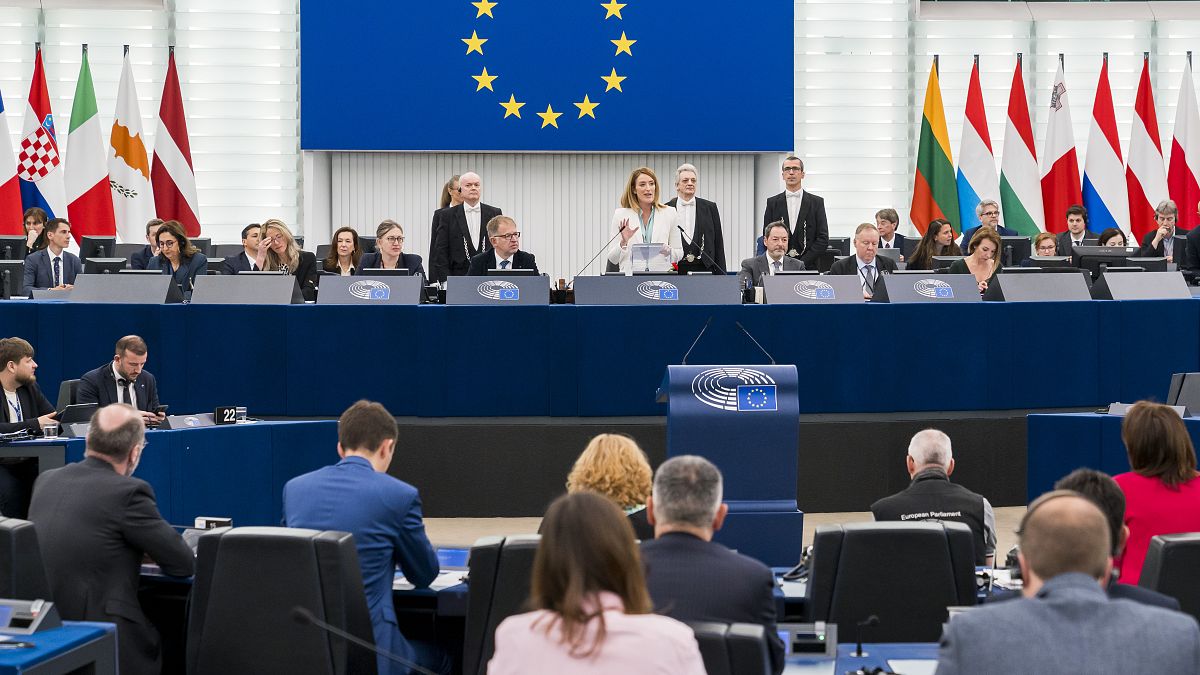The European Parliament is facing criticism for not recognizing official parental leave for its members, a situation that could deter young people, especially women, from running for office. Despite progress in achieving gender balance, MEPs are still unable to claim parental leave, vote remotely, or appoint temporary replacements. The lack of provisions for maternity, paternity, or parental leave poses a significant barrier to those looking to balance political activity with family responsibilities. In response to these issues, MEPs such as Leïla Chaibi have called for reforms to adapt to modern times and provide adequate support for individuals balancing parenthood and political duties. However, the implementation of such reforms has been slow, with the current system only offering limited accommodations for MEPs on maternity leave.
While some progress has been made, such as the introduction of an asterisk next to absent MEPs’ names indicating the reason for their absence, further measures are needed to address the challenges faced by those on parental leave. One of the key demands from a manifesto signed by MEPs last year was the introduction of provisions for remote voting, a system that has been successfully used during the COVID-19 pandemic. However, the European Parliament is still assessing the technical, organizational, and procedural challenges associated with implementing remote voting for MEPs on parental leave. Despite the potential benefits of such measures, concerns about the security and reliability of the voting process have hindered progress in this area.
The absence of official parental leave recognition in the European Parliament not only affects the representation of young people and women but also raises broader questions about the institution’s commitment to inclusivity and diversity. The average age of an MEP is currently 53 years old, with only a small number of members under 30 years old. This lack of representation can deter young individuals from entering politics, especially if they are considering starting a family. The failure to implement reforms to support MEPs on parental leave sends a negative message to aspiring politicians and undermines the EU institution’s credibility as a model for companies and citizens. By failing to address the issue of parental leave, the European Parliament risks alienating a significant portion of the population and perpetuating inequalities in political representation.
Despite the challenges faced by MEPs on parental leave, some member states have already taken steps to address the issue and provide support for elected representatives balancing political duties with family responsibilities. Countries like Belgium, Germany, Italy, and Sweden explicitly allow MEPs to take parental leave, demonstrating a commitment to inclusivity and support for individuals in all stages of life. In Germany, members of the Bundestag are entitled to maternity leave before and after childbirth, while in Spain, MPs can vote remotely while absent from parliament, providing flexibility for individuals to fulfill their responsibilities. These examples highlight the importance of recognizing the diverse needs of elected representatives and ensuring that all individuals have the opportunity to participate in political life, regardless of their family status.
As the European Parliament looks towards the future, it must prioritize the implementation of reforms that support MEPs on parental leave and promote a more inclusive and diverse political landscape. By recognizing the right to parental leave and providing provisions for remote voting, the EU institution can signal its commitment to supporting individuals in all aspects of their lives. By addressing the barriers faced by young people, especially women, in running for office, the European Parliament can create a more representative and equitable political environment. As the upcoming elections draw near, the need for parental leave recognition in the European Parliament is more pressing than ever, with the potential to shape the future of European politics for generations to come.











